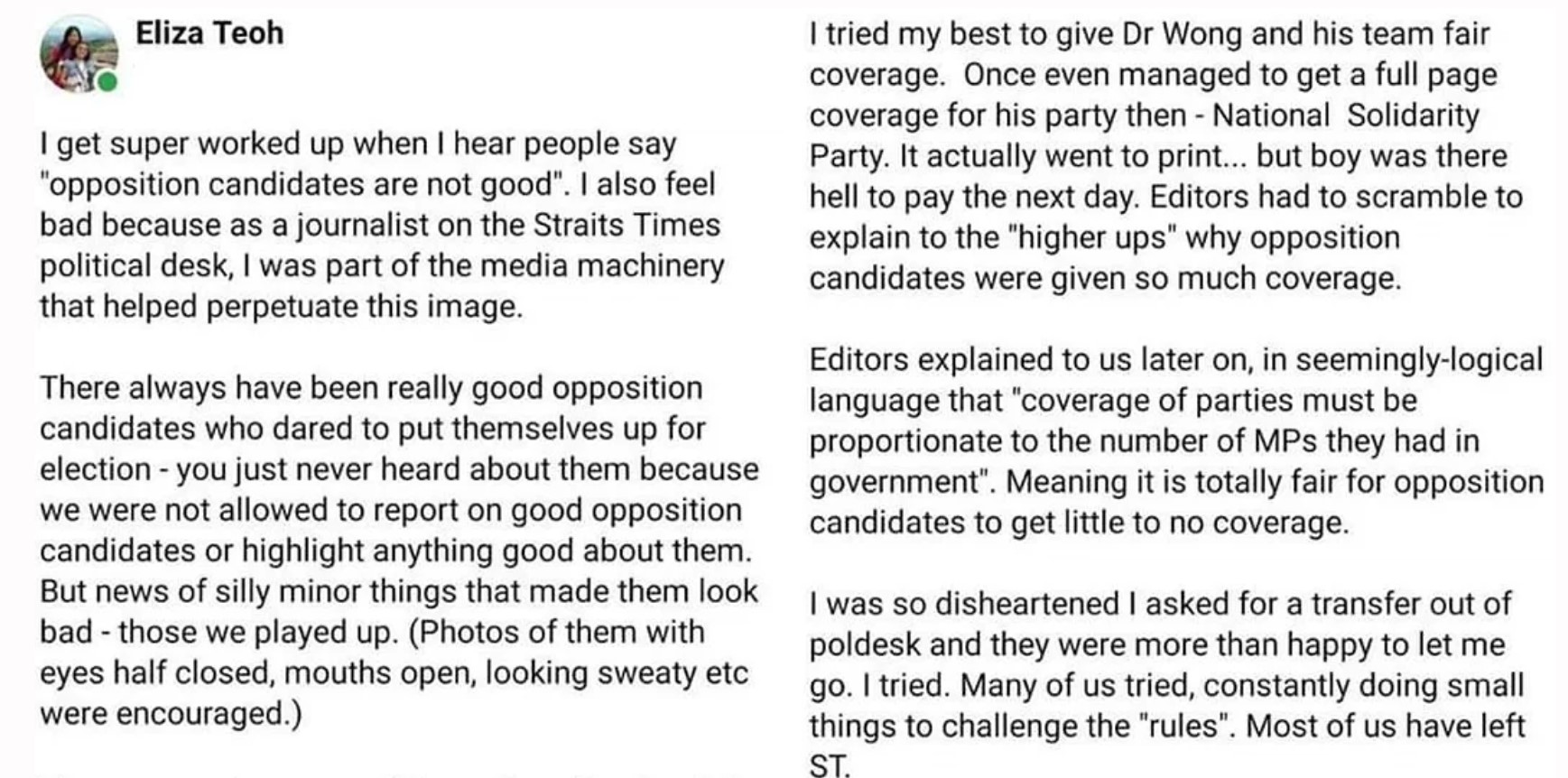SINGAPORE: A former mainstream media journalist’s allegations about censorship when it comes to reporting on opposition politicians are recirculating online, as speculation about the timing of the next election heats up.
Back in 2020, ex-Straits Times journalist Eliza Teoh said that she and her colleagues “were not allowed to report on good opposition candidates or highlight anything good about them.” She added that “news of silly minor things that made them look bad” were “played up.”
Asserting that the media helped perpetuate the image that “opposition candidates are not good,” Ms Teoh said that she once managed to get a full-page coverage for an opposition party but there was “hell to pay the next day,” leaving her editors scrambling “to explain to the “higher ups” why opposition candidates were given so much coverage.”
She claimed, “Editors explained to us later on, in seemingly-logical language that “coverage of parties must be proportionate to the number of MPs they had in government”. Meaning it is totally fair for opposition candidates to get little to no coverage.”
Ms Teoh revealed that this policy left her so disheartened that she transferred out of the political desk and that many of her colleagues who tried to challenge the rules have since left the national broadsheet.
She added that voters should be wary of trusting what mainstream media is telling them to vote for, advising: “Vote for the party you think will ensure your views are respected and represented in parliament.”
While Ms Teoh made these revelations ahead of the 2020 general election, her comments are recirculating on internet forums like Facebook and Reddit as the next election looms.
Singaporeans responding to the comments as they recirculate online noted that the comments are as relevant today as they were four years ago, with others echoing Ms Teoh’s call for critical thinking and voting according to one’s conscience.
Some added that they are “not surprised” by the censorship allegations and welcomed social media for allowing them to have better access to opposition parties than voters did in the past.
TISG/

